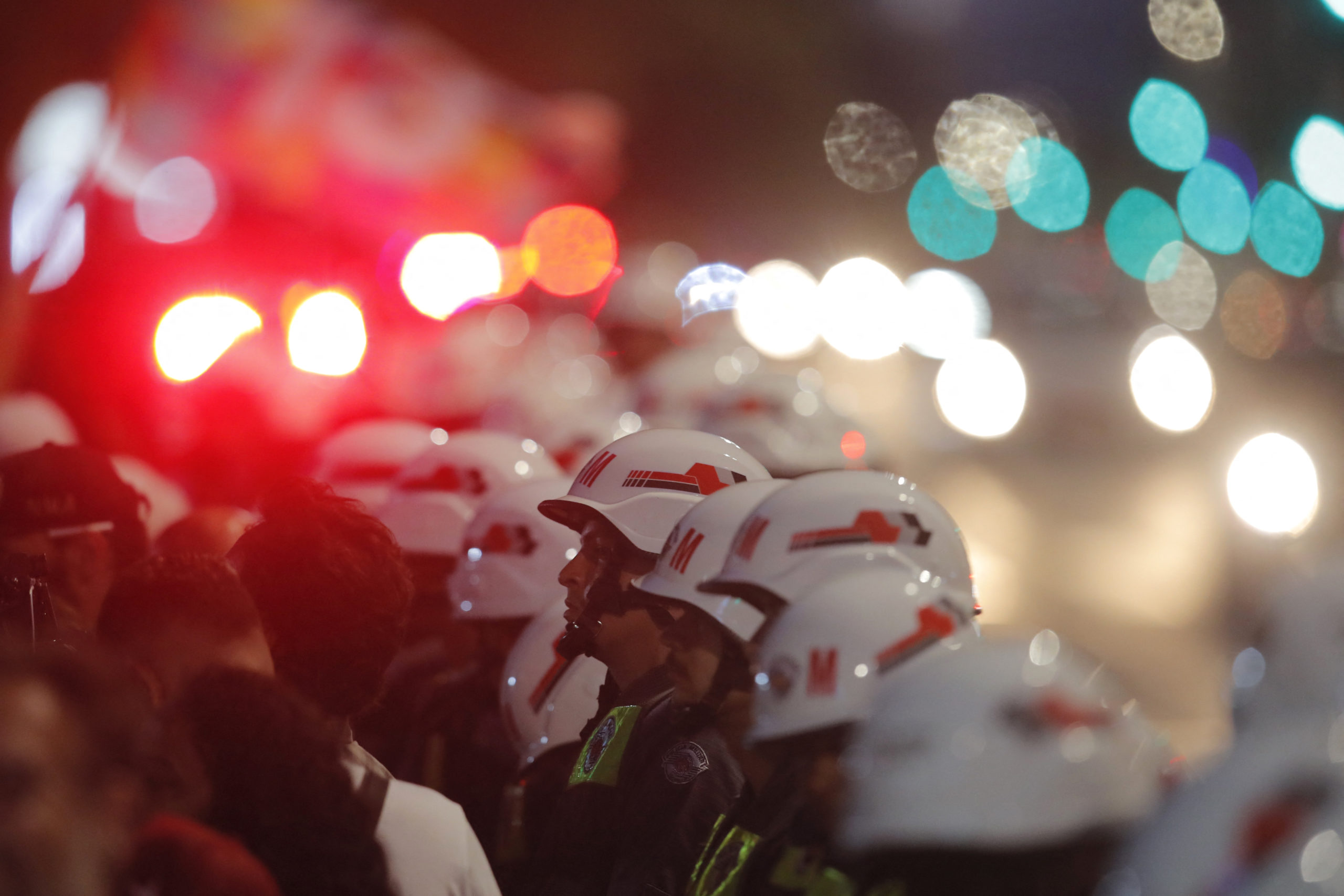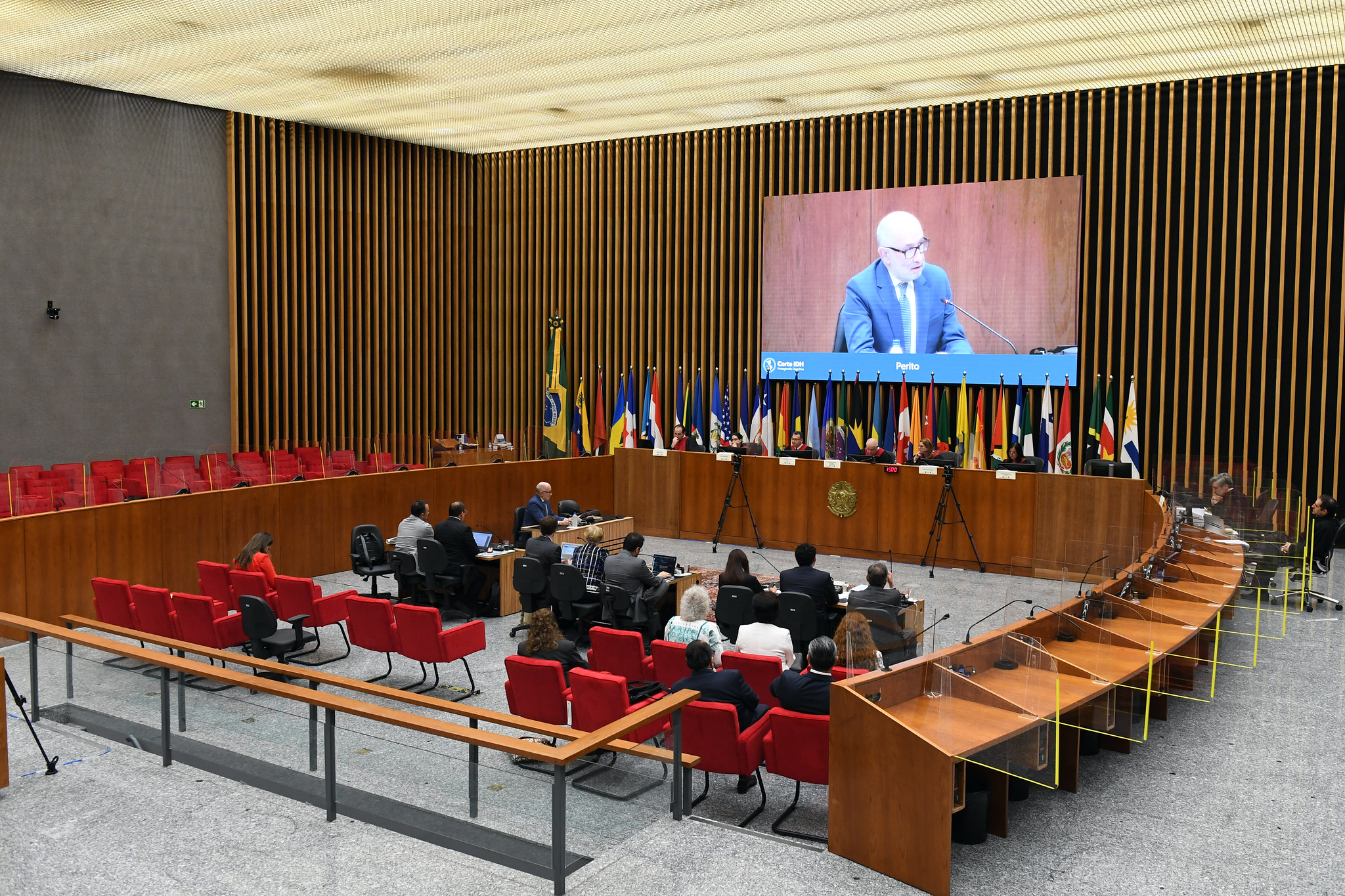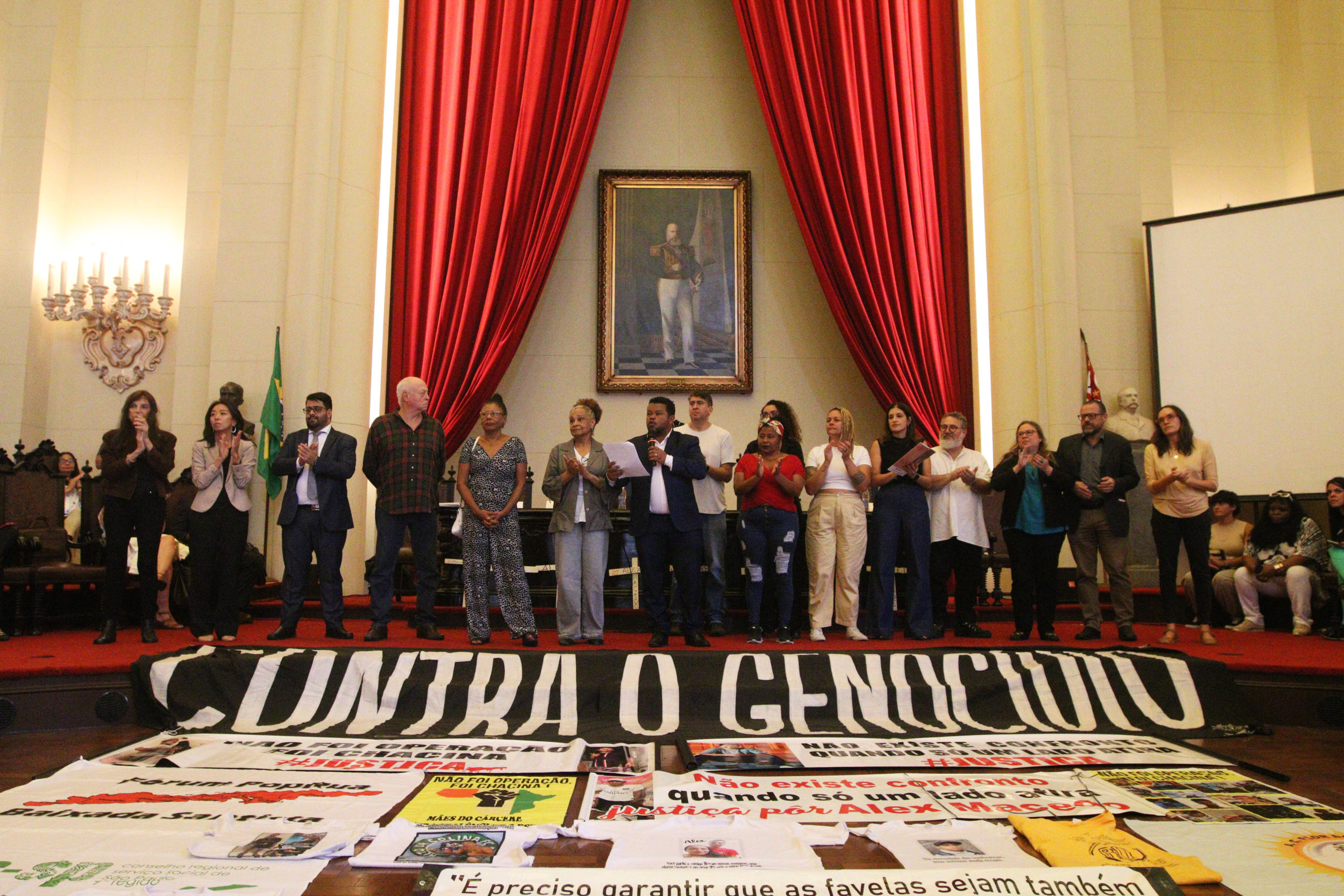Arms Treaty :: 3 reasons for Brazil to ratify
Understand why the country should adhere to the agreement regulating the global arms market
 A historic meeting between representatives of 120 countries ended on Thursday, August 27, in Cancún, Mexico, with the definition of important matters concerning the procedures and implementation of the Arms Trade Treaty (ATT). This is the first global agreement to regulate the market of conventional weapons – a category that includes everything from pistols to tanks.
A historic meeting between representatives of 120 countries ended on Thursday, August 27, in Cancún, Mexico, with the definition of important matters concerning the procedures and implementation of the Arms Trade Treaty (ATT). This is the first global agreement to regulate the market of conventional weapons – a category that includes everything from pistols to tanks.
The States defined the rules of procedure for the conferences of States Parties to the agreement, the funding for the treaty secretariat and they selected the city of Geneva, Switzerland, as the headquarters of the secretary-general – the South African Simeon Dumisani Dladla, who will hold the position provisionally. The countries also created a committee to debate models for the so-called “national reports”, documents detailing the values and quantities of arms transfers that each country must send periodically to the secretary. The next conference will be held in 2016, in Switzerland, and will be chaired by Nigeria.
Brazil, the world’s fourth largest exporter of light weapons, according to the Small Arms Survey, lost the opportunity to play a leading role in the negotiations at the conference because it has not yet ratified the agreement. After having been approved by the ministries of Foreign Relations, Justice and Defense, and by the Office of the Presidential Chief of Staff, the ratification process is now pending in the National Congress.
“Brazil’s absence from the treaty is very serious. It means that the country does not have the so-called ‘ATT seal’, which is awarded to responsible arms exporters that have adhered to the treaty’s regulation principles. These principles include, for example, the ban on arms sales to governments that commit crimes against humanity, such as genocide,” said Camila Asano, coordinator of Foreign Policy at Conectas.
Direct from Cancún, Asano analyzes the results of the 1st Conference of States Parties to the Arms Trade Treaty. Watch:
Reasons to ratify the treaty
Brazil, in June 2013, was one of the first countries to sign the treaty and signal to the world that it planned to contribute to the responsible regulation of the international arms trade. Three years later, it has still not joined the agreement on account of delays in the ratification process.
It took the executive branch of the Brazilian government 17 months to approve the treaty. Afterwards, it proceeded to the Lower House of Congress, where it is currently pending, and it will also need to be passed by the Senate before being signed by the president.
The ratification of the treaty has already been endorsed by ministers and the Armed Forces.
There are several reasons why Brazil should ratify the agreement:

1) Firearm deaths keep rising in Brazil
According to the most recent Violence Map, a survey conducted by the federal government in partnership with Unesco, Brazil registered more than 42,000 firearm deaths in 2012. An average of 116 per day.
The survey also emphasizes the alarming growth of 387% in the number of fatal shooting victims from 1980 to 2012. This number rises to 463% in the 15 to 29 age bracket.
The ratification of the Arms Trade Treaty can help prevent weapons exported by Brazil to neighboring countries from returning to the country illegally and fueling violence. It will also help combat the diversion of arms that enter Brazil from other countries for use in crime.

2) The ATT is a mechanism to stop the sale of arms to countries that commit crimes against humanity and/or that are under multilateral arms embargoes
The treaty bans countries from transferring weapons to governments that could use them to commit atrocity crimes and crimes against humanity, such as genocide. It also bans exports to countries that are under arms embargoes.
The agreement further requires the exporting country to assess the risk that an arms transfer will be diverted and fuel, in other countries, transnational crimes and serious human rights violations, particularly against women and children.
In 2013, a group of UN experts concluded that Brazilian-made non-lethal weapons were being used in Ivory Coast, a country that since 2004 has been under an arms embargo imposed by the UN Security Council.
Currently, Brazil’s military weapons and ammunition export policy is regulated by a secret decree that dates back to the military dictatorship: PNEMEM – the National Export Policy for Military Equipment. The contents of the document, created in 1974, have never been released.
The “Barometer”, created by the Small Arms Survey, lists the transparency level of the world’s major arms exporters. In the most recent survey, published in 2014, Brazil ranked 43rd on the list of 53 States, just above China (44th).
Ratifying the ATT will help Brazil improve its procedures for the authorization of arms exports.

3) Brazil is the 4th largest arms exporter in the world
According to the Small Arms Survey, Brazil is the world’s fourth largest exporter of small arms and light weapons, behind only United States, Italy and Germany, and ahead of countries such as Russia, China and Israel.
The survey reveals that, in 2012, Brazilian arms industry exports totaled US$374 million – an increase of 295% from 2001.
Countries considered Brazil’s competitors, such as Italy and Germany, have already ratified the treaty and as such they already have the “ATT seal” of exporters that adhere to the rules of responsibility. Staying outside the ATT projects the image of Brazil as a vulnerable arms exporter, since it does not figure among the countries that observe the minimum rules established by the agreement.


